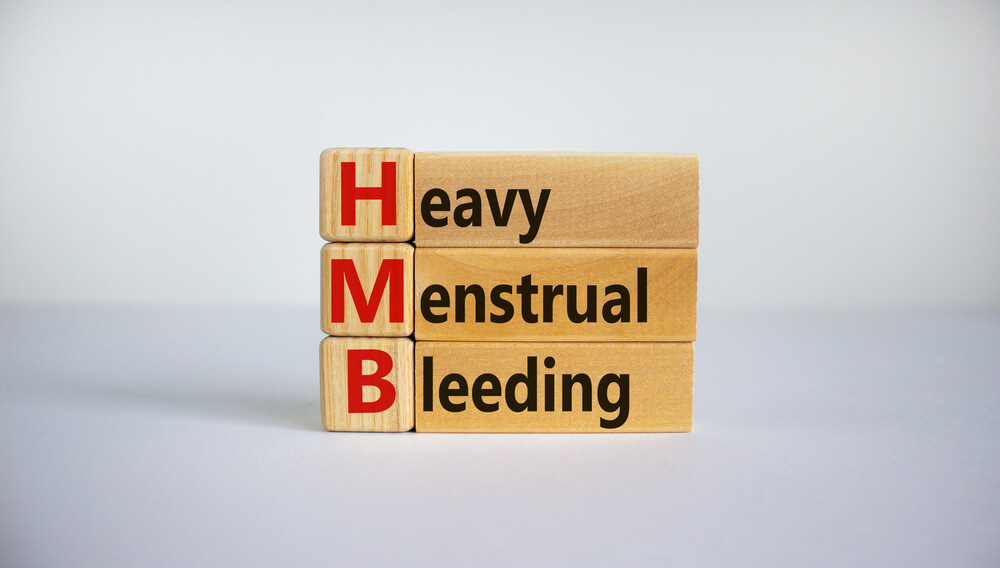If you find heavy menstrual bleeding unbearable to the point that it affects the quality of your everyday life, you may want to consider endometrial ablation. However, before making a final choice, you need to educate yourself on the benefits and potential risks associated with this procedure. This article on endometrial ablation also discusses what you should expect during endometrial ablation recovery. We’ll also answer, “is endometrial ablation worth it?”, so you get a clear idea of whether you should opt for this procedure or not. Besides educating yourself on this topic, you will also want to seek out a minimally invasive surgery clinic with excellent credentials and a team of reliable experts.
Without further delay, here’s what you need to know about uterine ablation, the period after ablation, and more.
Read on.
What is Endometrial Ablation?
In short, endometrial ablation refers to a non-surgical procedure during which a professional removes your endometrium or the thin tissue layer that lines your uterus. Women opt for uterine ablation to reduce or completely stop heavy menstruations. However, doctors only perform this procedure on women who don’t want children.
If you have any questions or concerns, we recommend reaching out to a professional such as Dr. Francisco Jimenez. Remember, your health is a top priority.
What are the Different Uterine Ablation Techniques?

Your healthcare specialists can perform endometrial ablation (or uterine ablation) in a few ways. First of all, it’s important to remember that this is a non-surgical procedure wherein you won’t have any incisions or cuts. Instead, the expert will use a small tool in the vagina to get to the uterus. The techniques involved include:
- Hydrothermal method using fluids
- Electrical method using electricity
- Balloon therapy
- Cryoablation
- Radiofrequency ablation
- Microwave ablation
During balloon therapy, the professional will put a catheter or a thin tube with a balloon at the end into your uterus. Then, the expert will fill the balloon with heated up fluid, which destroys the uterine lining.
With cryoablation, the doctor uses a cold probe to freeze the lining of the uterus. Microwave ablation involves sending microwave energy via a thin probe to the lining, and radiofrequency ablation utilizes an electrical current created by radio waves to do the same. Moreover, doctors sometimes perform uterine ablation procedures with the use of a hysteroscope, a tool that can see inside the uterus.
Reasons to Get a Uterine Ablation
Is endometrial ablation worth it? To answer this question, let’s first see who is a good candidate for this procedure. Firstly, women with long and heavy periods may want to consider uterine ablation. Moreover, women who experience bleeding between menstruations (abnormal uterine bleeding) may want this procedure. In many cases, menstrual bleeding can be extremely heavy and affect a person’s quality of life. In many cases, women can become anemic because of heavy periods.
What is heavy bleeding? It’s when you need to change your tampons or sanitary pads each hour. What is prolonged bleeding? It’s when your menstruation lasts more than a week.
So, is endometrial ablation worth it? Yes, if you want to treat excessive blood loss. Also, if you have unusually heavy, long-lasting periods, this may be a good choice for you. Keep in mind, to reduce heavy menstrual bleeding, professionals will typically start with recommending an intrauterine device (IUD) or medications. However, if these primary treatments aren’t making your condition better, you may choose endometrial ablation.
Suppose you’re a postmenopausal woman. In this scenario, is endometrial ablation worth it? No. Experts don’t recommend endometrial ablation for women who are in postmenopause or women with:
- An active pelvic infection
- Endometrial (uterine) cancer, or a boosted chance of cancer
- Uterus abnormalities
Also, you might be unsuitable for endometrial ablation if you experience:
- Uterine muscle wall weakness
- Uterine endometrial, or cervical cancer
- Cervical or vaginal infection
- Pelvic inflammatory disease
- If you have an intrauterine device
- If you are pregnant or if you believe you might be pregnant
- If you have a vertical or a classic C-section incision
- If you have an abnormally shaped uterus
If you have any of these, your uterine ablation can be more complex:
- Large uterus or a uterus that is short in length
- A narrowing of the inside of your cervix
Endometrial Ablation Recovery: What to Expect
Your recovery process will significantly vary depending on the type of endometrial ablation and the anesthesia type your doctor used. You will be in a recovery room if you had general, epidural, or spinal anesthesia. When your breathing, pulse, and blood pressure stabilize, you may be transferred to a hospital room or be able to go home. If you had endometrial ablation as an outpatient, you will need someone to drive you home.
On the other hand, patients who opt for an anesthesia-free procedure will need to rest for 2 hours. After they stabalize, they can leave.
You will also want to make some preparations for the period after ablation. For instance, you might need sanitary pads for normal post-procedure vaginal bleeding. You might also experience watery-bloody discharge that lasts a few weeks. During your endometrial ablation recovery, other symptoms that you may expect include vomiting, nausea, and cramping. Luckily, these symptoms typically last for the initial few days post-procedure.
As you can see, the period after ablation can be challenging, but the adverse symptoms go away within a few days, up to a few weeks. But, of course, if your symptoms persist and they get worse, make sure to consult with your healthcare provider immediately.
What are the Most Common Risks of Uterine Ablation?

Endometrial ablation poses some of the following risks:
- Infection
- Fluid overload in the bloodstream
- Bleeding
- Tearing of the bowel or uterine wall
To reduce the risks of endometrial ablation, speak with your healthcare provider if you have sensitivities or allergies to latex, iodine, or certain medicines. Also, you need to tell your doctor if you are pregnant or if you suspect pregnancy. If you are pregnant and proceed with the procedure, you can have a miscarriage.
Based on your specific condition, you may experience other risks. Make sure always to discuss your health, the procedure, and what to expect with your healthcare provider.
Reach out to your healthcare provider in the case of the following:
- If you have trouble urinating
- If you experience heavy bleeding or excessive bleeding that lasts more than 2 days post-procedure
- If you experience serious, persistent abdominal pain
- If you have chills or a fever
- If you notice a foul-smelling vaginal discharge
Before saying “yes” to this procedure, you need to make sure that you also know the following:
- You know the name of the process or the test
- You have a good reason why you want the procedure
- You have educated yourself about the possible outcomes
- You are aware of the benefits and risks of this procedure
- You are aware of the potential complications
- You have found an excellent healthcare specialist at a trusted clinic
Give us a Call Today
If you have any concerns or questions about this procedure, we’re here. Our team of experts will help guide you along the process and the recovery period. Schedule an appointment today.


